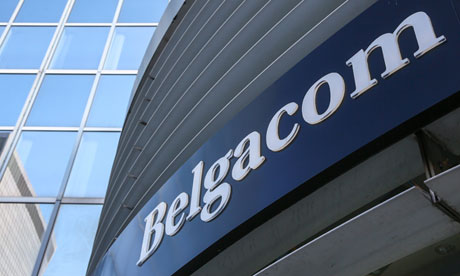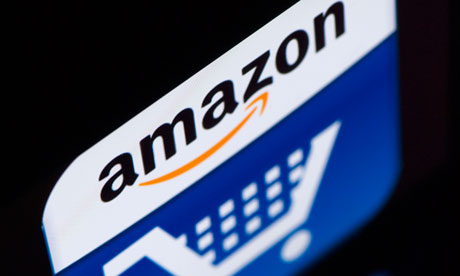http://www.theguardian.com/world/2013/oct/03/russia-gazprom-charges-eu-regulators


EU regulators are preparing to charge Russian gas export monopoly Gazprom with abusing its dominant position in central and easternEurope, the EU's antitrust chief said on Thursday, in a move that could lead to a fine of up to €11bn (£9bn).
The European commission's action against Gazprom is likely to ratchet up the tension between Europe and Russia, which has criticised EU attempts to boost energy market competition and end its over-reliance on Russian supplies.
It could also play into tensions with Russia over the EU's plans to build closer trade ties with six former Soviet republics, including Ukraine. Moscow has threatened to raise Ukraine's gas prices or limit supplies if Kiev signs a free-trade agreement with the EU in November.
The comments by EU Competition Commissioner Joaquín Almunia come after a year-long investigation and raids of several Gazprom units and its clients in central and eastern Europe. Gazprom supplies a quarter of Europe's gas consumption needs.
The EU antitrust regulator said at the time that Gazprom might have hindered the free flow of gas across the EU and imposed unfair prices on its customers by linking the price of its gas to oil prices.
Speaking at a conference in the Lithuanian capital Vilnius, Almunia said the EU's executive was preparing a charge sheet against Gazprom, known as a statement of objections.
"It would be premature to anticipate when the next steps would be taken in this investigation, but we have now moved to the phase of preparing a statement of objections," he told an event organised by the Lithuanian Competition Authority.
He said the investigation covered Estonia, Latvia, Lithuania, Poland, the Czech Republic, Slovakia, Hungary and Bulgaria.
Asked when he would charge Gazprom, Almunia told reporters: "We never pre-commit to deadlines."
A source familiar with the matter told Reuters that the commission planned to take action by the end of the year.
Gazprom said it would not comment on the antitrust case. The company, which generated 4.76 trillion roubles (£91bn) in revenues last year, could stave off a potential fine by offering concessions to settle the case.
Following previous EU investigations, the company agreed to scrap a clause preventing Austrian energy group OMV and Italy's ENI from re-selling gas bought from Gazprom in other markets.
Companies can be penalised up to 10% of their annual revenues for breaching EU antitrust rules.
Lithuania, which has complained to the commission about Gazprom, is claiming almost $2bn compensation from the company at an international arbitration in Stockholm for allegedly "unfair" gas prices. It pays more for gas than any other EU state, according to the commission.
http://www.theguardian.com/uk-news/2013/oct/03/gchq-eu-surveillance-cyber-attack-belgian
GCHQ: EU surveillance hearing is told of huge cyber-attack on Belgian firm
Belgacom boss says no company or country could have withstood cyber-attack of this size and sophistication

The German magazine Der Spiegel has reported that Belgacom's systems were infiltrated by GCHQ. Photograph: Julien Warnand/EPA
A cyber-attack on the internet systems of the main Belgian telecommunications company, Belgacom, was so massive and sophisticated that no company or country would have been able to withstand it, a European parliament committee looking into the masssurveillance operations of the US National Security Agency (NSA) and Britain's GCHQ has been told.
The hearing of the parliament's civil liberties committee was told by Belgacom executives that it did not know the source or the purpose of the complex hacking operation detected in June. Sophie in 't Veld, the Dutch Liberal chairing the session, said it was clear from the evidence that the scale of the attack meant it could have been performed by only a "state actor".
Last month – quoting leaked documents from the NSA whistleblower, Edward Snowden – the German magazine Der Spiegel reported that the Belgacom systems had been infiltrated by GCHQ in what was codenamed Operation Socialist.
An empty seat on the podium was reserved for Sir Iain Lobban, the director of GCHQ, who had been scheduled to appear before the committee but refused. A letter on Tuesday from Sir Jon Cunliffe, the UK ambassador to the EU, obtained by the Guardian, said the GCHQ chief would not appear since intelligence and national security were none of the EU's business.
The letter said GCHQ "adheres to strict principles of necessity, proportionality and legality … and upholds the law at all times, including when dealing with information from outside the UK".
MEPs voiced outrage that the UK government had failed to make anyone available for questioning over the allegations.
While the Belgacom executives and a senior official from Belgium's data protection agency repeatedly emphasised that neither customers' nor citizens' privacy had been compromised by snooping, email surveillance or phonetapping, they also confirmed that the scale of the attack was unprecedented in their experience.
"This is a kind of attack that a single company or country would be unable to withstand on its own," said Dirk Lybaert, Belgacom's secretary general. He spoke of "an attack of such complexity and of such a high level and with such resources behind it".
The executives added that the company believed it had comprehensive security systems in place to counter cyber-attacks, but had been rendered helpless by the scale of the infiltration of 124 Belgacom IT systems.
The Belgian PM, Elio Di Rupo, last month complained that the attacks amounted to an assault on the country's integrity and promised a strong response if the perpetrators were identified.
Frank Robben, investigating the attack for the national data protection agency, said it was a serious attack, but that the damage had been limited because of "rapid action". That claim was undermined by Belgacom admissions that though the malware intrusion was discovered in June, they did not know when the attack first took place.
Der Spiegel reported that it was initiated three years ago and quoted GCHQ officials as describing the operation as a success.
The executives were at pains to neither deny nor confirm media reports of GCHQ culpability, repeatedly declaring they had no evidence to prove or disprove the reports. Robben admitted that Belgium lacked the right tools and expertise to get to the bottom of the case.
The Labour MEP Claude Moraes and In't Veld complained that the evidence from the Belgians had left them mystified, raising more questions than answers.

Amazon will not be able to combine free delivery with France's 5% discount limit on books if the bill becomes law. Photograph: Lionel Bonaventure/AFP/Getty Images
France has begun a new chapter in the saga of its online book wars, with French MPs unanimously backing a move that will curb the discounting power of Amazon in the country.
Warning that small independent bookstores were facing unfair competition from the US internet firm, MPs supported a bill that will prevent it combining free delivery with 5% discounts on books.
In a rare show of unity, parliamentarians on the right and left voted for the move to defend the French "cultural exception" against market forces and global digital powerhouses.
The bill, which must now be approved by the senate, is the latest round of French politicians taking on the might of the major US internet firms.
Since 1981 French law has fixed book-prices so that readers pay the same whether they buy online, from a big high street chain, or from a small bookseller. Extensive discounting is banned.
The government said the measure has saved its independent bookstores from the ravages of free-market capitalism that hit the UK when it abandoned fixed prices in the 1990s. The law, which applies to all online booksellers, does allow for a small amount of discounting – as long as it is no more than 5%. Small booksellers argue they cannot compete with Amazon because it provides free postage and free fast delivery deals on top of 5% discount.
The culture minister, Aurélie Filippeti, who backed the bill, had told booksellers in a speech in Bordeaux last year: "Everyone has had enough of Amazon, which by dumping practices, slashes prices to get a foothold in markets only to raise them as soon as they have established a virtual monopoly … the book and reading sector is facing competition from certain sites using every possible means to enter the French and European book market … it is destroying bookshops."
Guillaume Husson, of the booksellers union, Syndicat de la librairie française, hailed the bill as a sign that public powers were "putting some balance back into the conditions of competition".
There are between 2,500 and 3,000 independent bookshops in France, compared with under 1,000 in Britain. Around 500 of the French independent bookshops sell online but they have warned that they were unable to compete with Amazon.
Romain Voog, head of Amazon France, said in Le Figaro that the bill went against the interest of consumers and would push up the online price of books compared with prices in bookshops.
"Numerous customers live far from any bookshop and appreciate being able to buy their books online," he said, adding: "If this bill passes, it will have a minor impact on Amazon but it will penalise consumers and threaten cultural diversity in France because Amazon offers the biggest choice of new and secondhand books in France."
Voog said the company's four vast new warehouses in France stocked 800,000 titles, and offered books published more than a year ago while smaller sellers focused on new releases.
In recent years the French government has taken on a number of US internet and tech firms. Investigators are looking at the terms of Apple's contracts with mobile operators and last week the French data-protection watchdog threatened action against Google for failing to comply with national privacy guidelines.
good morning Fred,
ReplyDeleteGovernment still shut down and I'm still liking it. The lying Spanish politician should have a problem, I hope he is somehow held accountable, but lying does appear to be his nature.
Yes Bitcoin is very risky, I agree with you there but anymore there is no safety anywhere. Still I only dabbled in them myself, just enough to get familiar with the concept and transactions.
The shooting in DC seems a bit strange, I wonder if the lady just stopped her meds or something..
Government shutdown will round into next week , then we shall see what happens .
ReplyDeleteThe problem with Bitcoin is it will always be subject to overnight confiscation - and since it's just a digital creation with nothing backing it up , you might as well be banking Cumulus clouds ! Gold and silver certainly can and will be manipulated - but there is a store of value and it's tangible. D.C shooting is odd - still want an explanation for why this Connecticut woman wound up in DC with the child in the first place ?